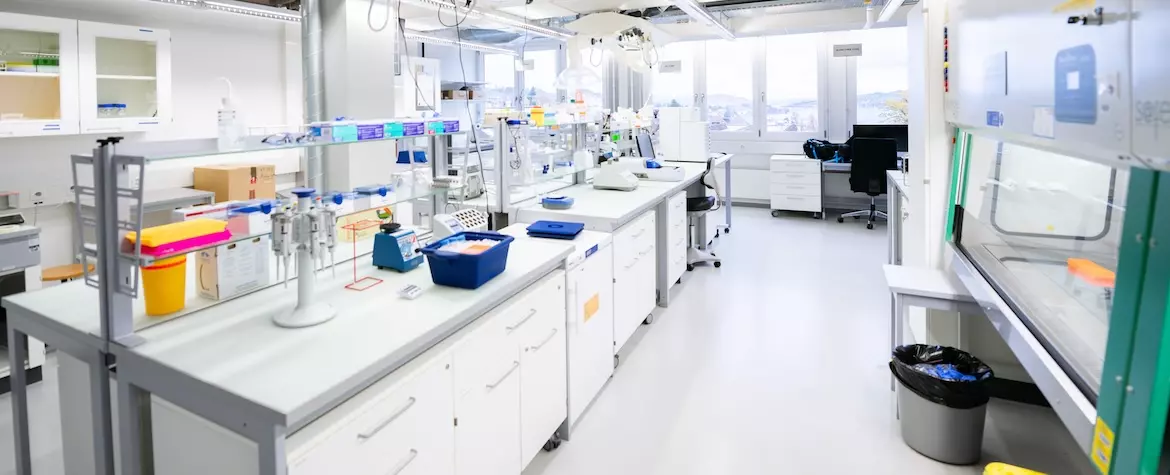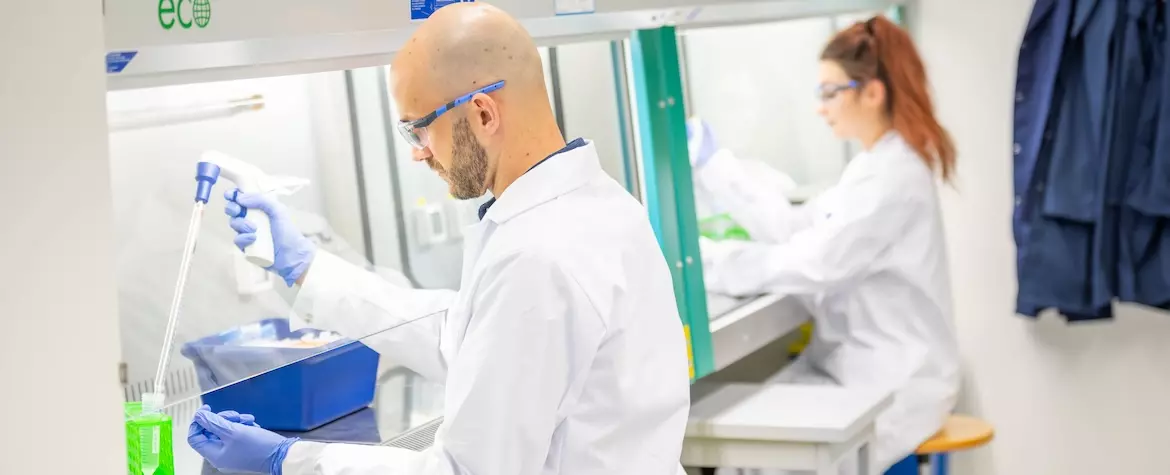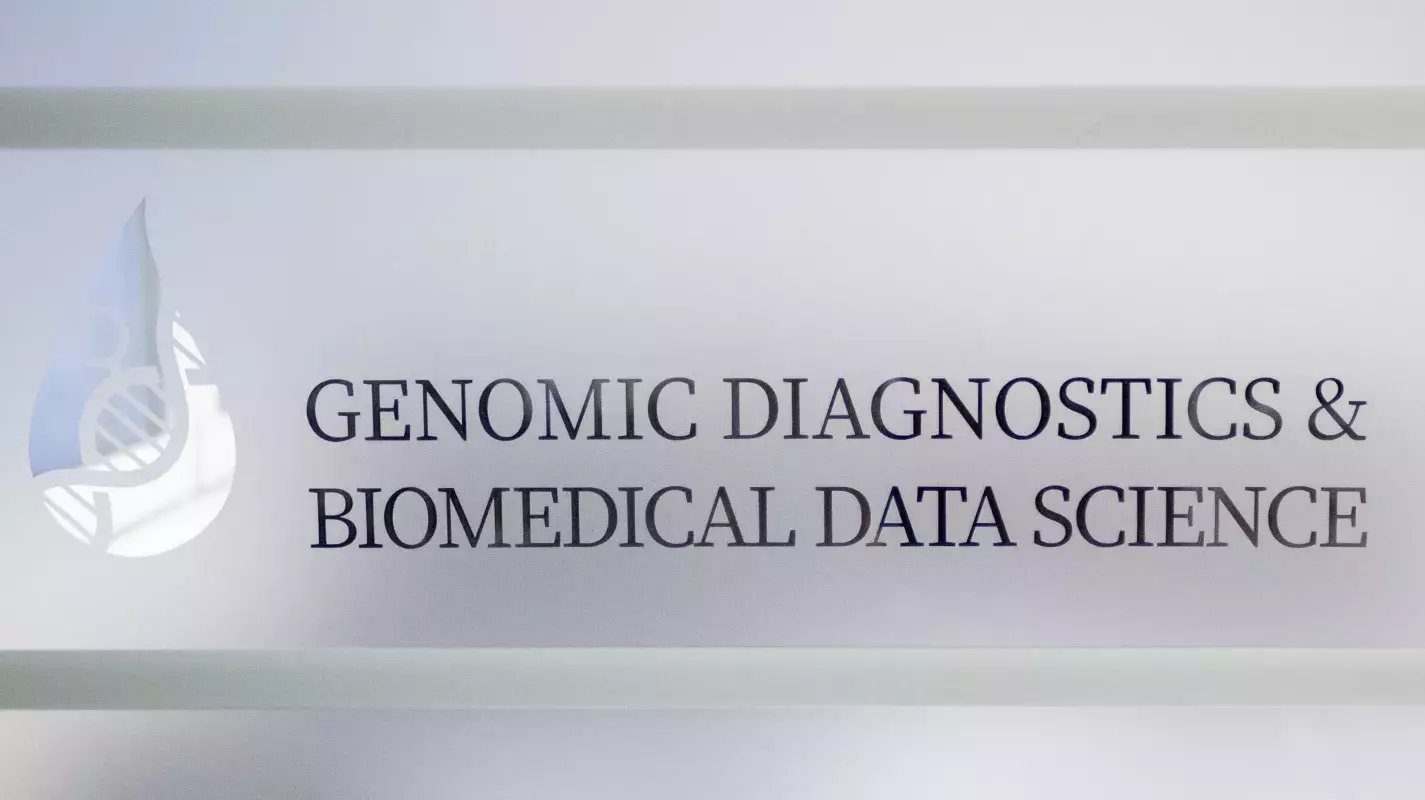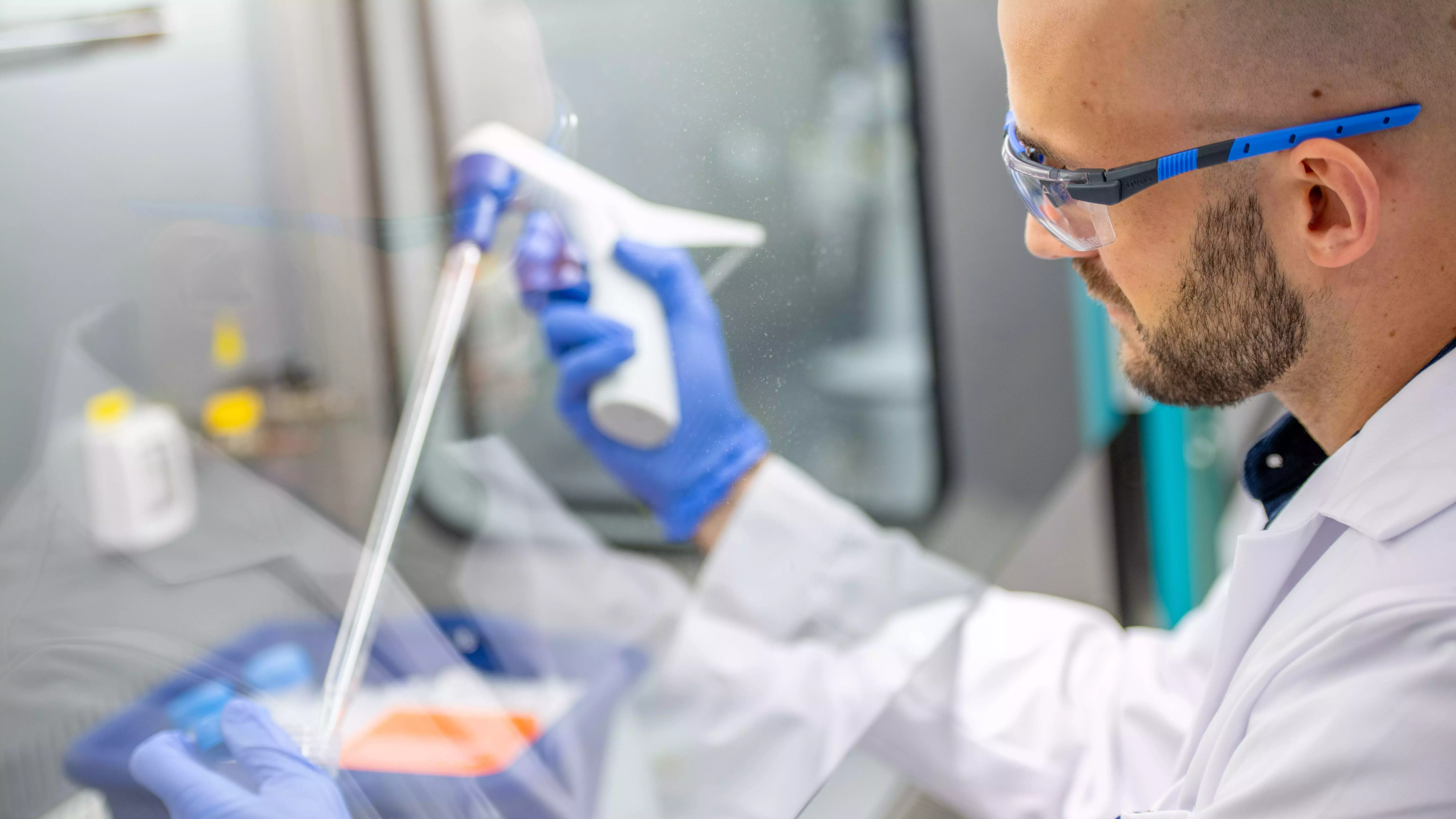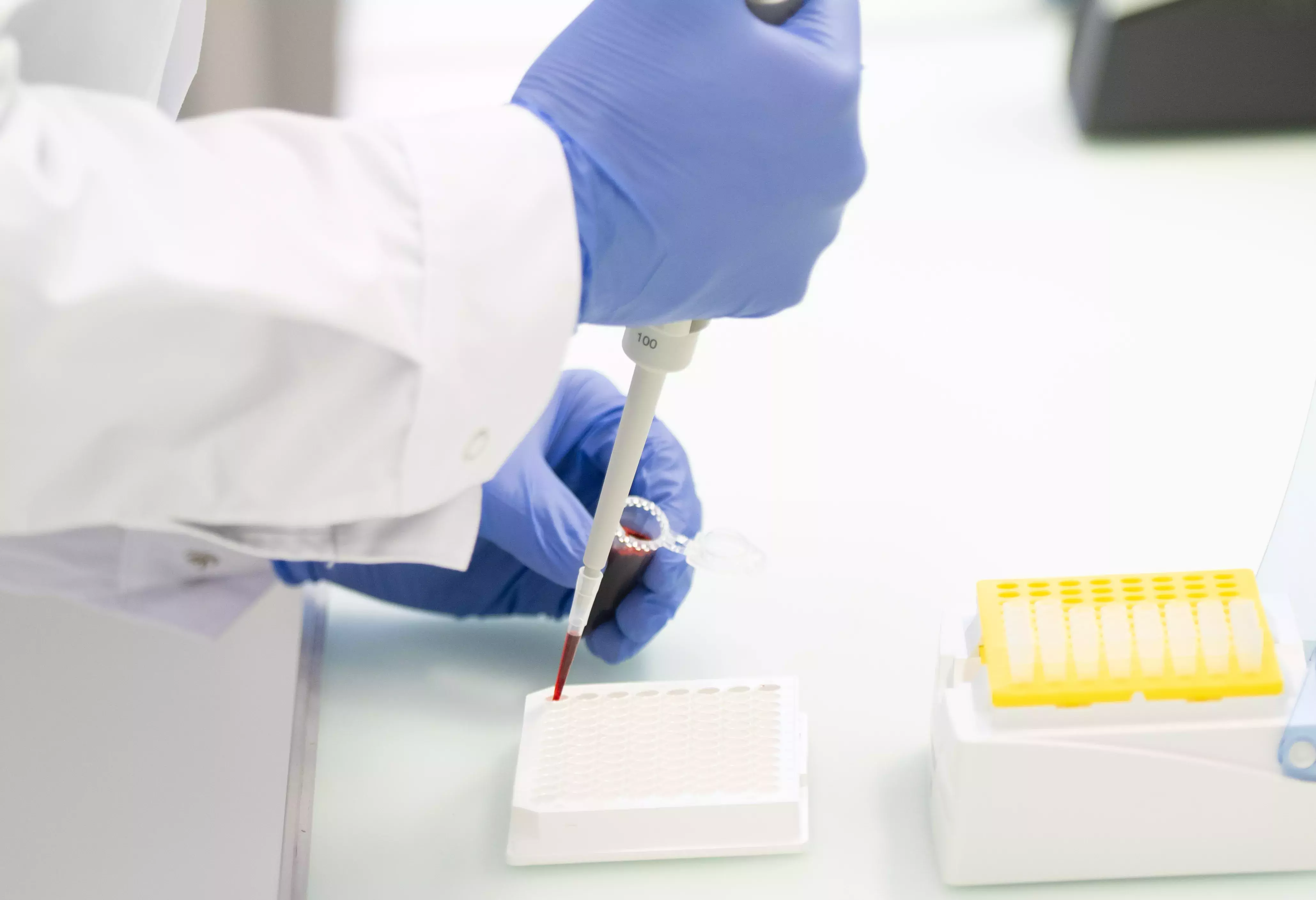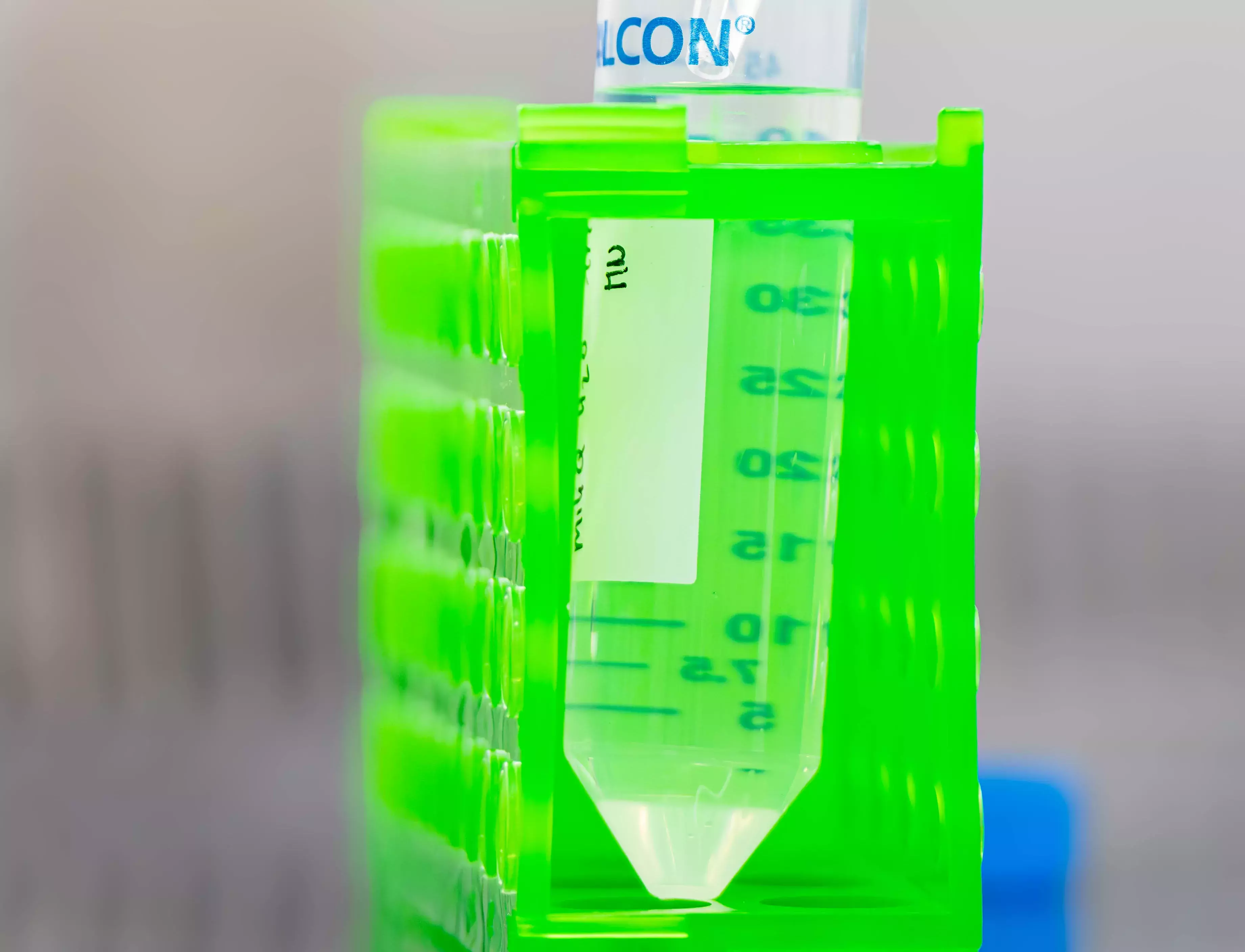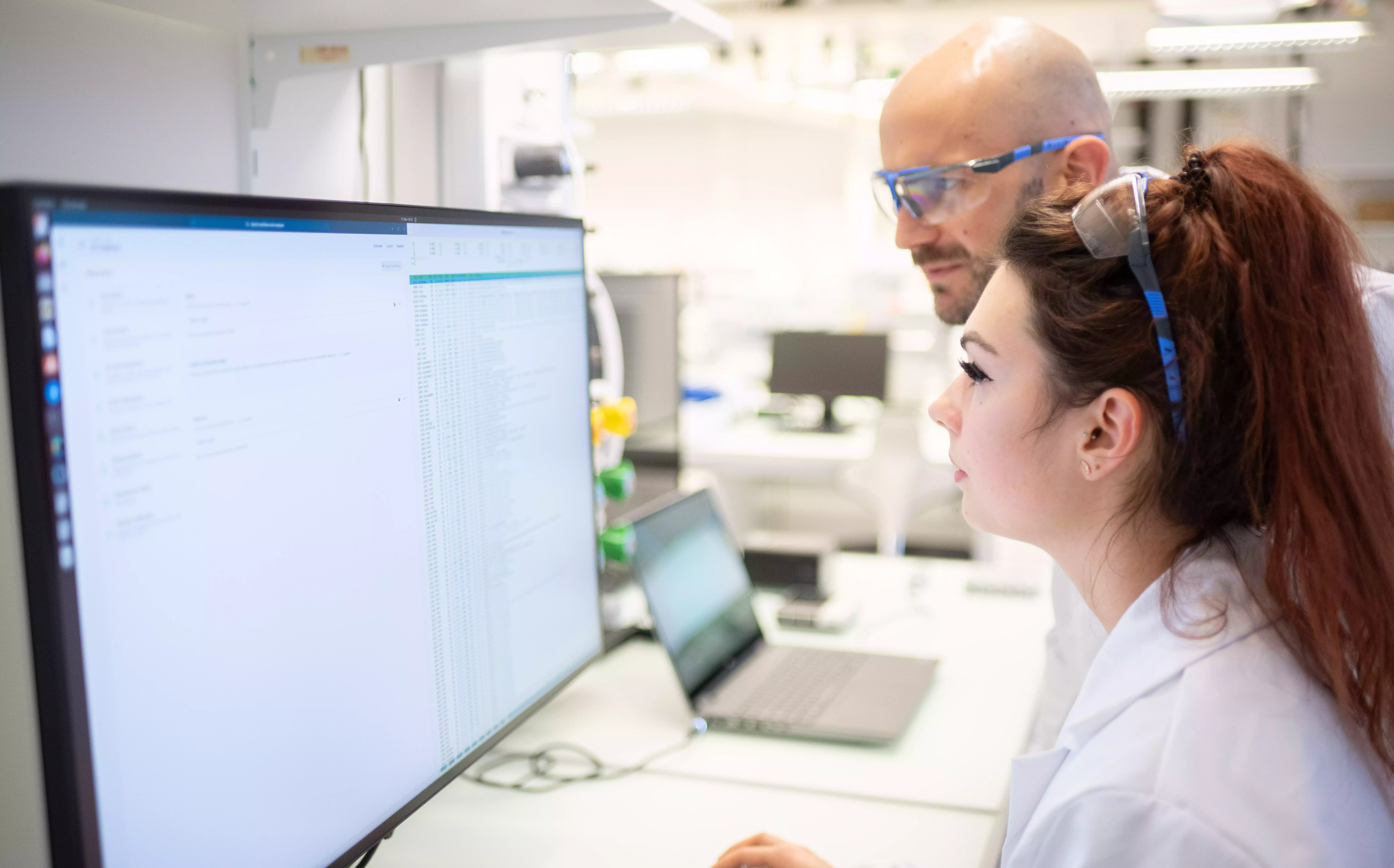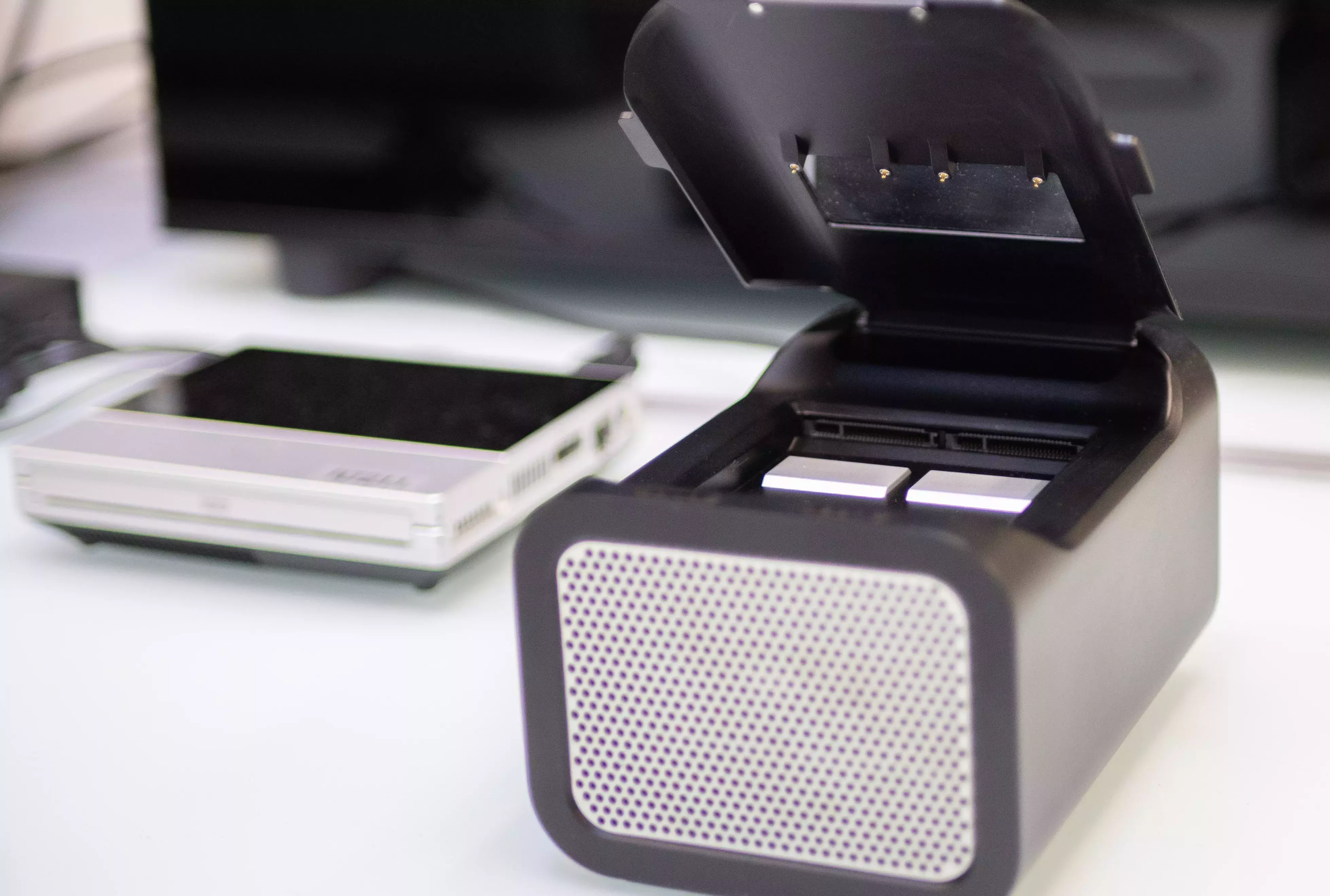Section of Genomic diagnostics and Biomedical data science
In times of rising healthcare costs, efficient healthcare is key. Genomic diagnostics plays an important role in this, as it enables more targeted treatment. Our research group uses genetic methods to gain more knowledge about the human genome. We use the latest technology to shape the future of cost-effective diagnostics. Our goal is to foster the adoption of genomic diagnostics to achieve a more individualized and efficient healthcare.

«Our passion is to foster the adoption of genomic diagnostics in daily practice to achieve a more precise and individualized medicine.»
Dr. Emanuel Zampiccoli
Head of Genomic Diagnostics and Biomedical Data Science Group
About us
Our research group covers the full spectrum of genetic analysis, from initial sample preparation through to comprehensive data analysis, utilizing our well-equipped molecular genetics laboratory. We apply cutting-edge "long-read sequencing" technology, which stands out from earlier methods by its ability to process long DNA fragments. As a result, we can generate and obtain more information, for example, on evidence about structural changes or repetitive sequences. Moreover, this advanced technology supports the detection and examination of DNA modifications, thereby contributing to the dynamic field of epigenetics. Thanks to our access to high-performance computers, we are able to carry out these computationally intensive data processings steps. In summary, our expertise spans from laboratory techniques to data analytics, enhancing our contribution to applied research projects in the field of genomic diagnostics.
Genomic Diagnostics-Wet lab
Our research lab is equipped for molecular genetic diagnostics. The different steps are strictly separated into zones in order to avoid contamination. Our infrastructure allows us to work with high-molecular weight DNA in order to prepare the DNA for long-read sequencing with corresponding optimization steps in library preparation (DNA sizing, DNA shearing).
Genomic Diagnostics-Data analysis
The sequence data obtained by long-read sequencing can be analyzed thanks to high-performance computers. For data processing and subsequent analysis, we use established bioinformatics software tools as well as workflows developed in-house using Python, bash and R.
Genomic Diagnostics-Quality control
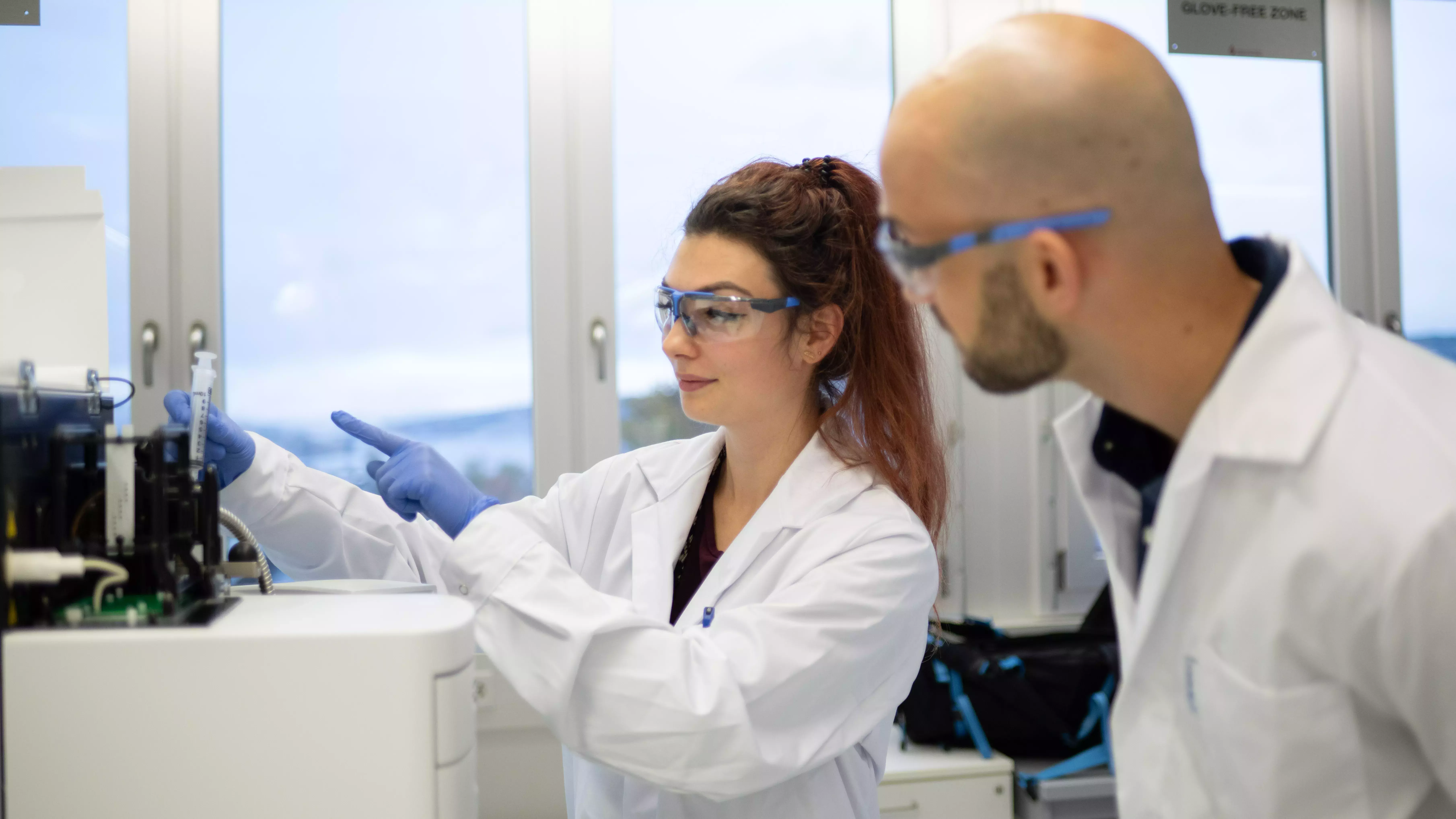
To ensure the quality control of the molecular genetic steps, we use specialized equipment (e.g. pulsed-field capillary electrophoresis for the analysis of high-molecular weight DNA). Documentation is carried out in an electronic laboratory notebook (ELN). To ensure traceability, we use dedicated software that allows us to save the data in accordance with the FAIR principles (findable, accessible, interoperable and reusable).
Team
-

Head of the Genomic Diagnostics & Biomedical Data ...
ZHAW School of Life Sciences and Facility Management
Genomic Diagnostics and Biomedical Data Science
Einsiedlerstrasse 31
8820 Wädenswil -

ZHAW School of Life Sciences and Facility Management
Genomic Diagnostics and Biomedical Data Science
Einsiedlerstrasse 31
8820 Wädenswil
